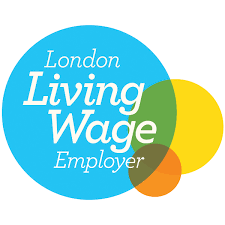
So what is the latest news on energy prices? This time last year, high energy prices were continually hitting the headlines, and most households were benefitting from a £400 government discount to help with the costs.
Since then, prices have varied. In July 2023, there was a fall in the energy price cap which led to lower energy bills for customers. The price cap - set by Ofgem - is the maximum amount that energy suppliers can charge customers for each unit of gas and electricity. However, the price cap has risen again in January 2024 which is expected to result in an increase of £94 in the annual energy bill of a typical household.
But there are things that you can do to keep your energy bills as low as they can be.
Here are ten tips to help you save money on energy bills this winter:
1. Get the best value from your energy supplier
During the energy price hike in 2022, the advice was not to change your energy supplier but stick with your current supplier. However, it could now be worth looking around to see if you may be able to get a better deal elsewhere. In fact, the comparison site USwitch recommends that you review your tariff every 12-18 months to see if you are getting the best value, particularly if you are coming off a fixed rate tariff and moving to a variable one.
The Energy Saving Trust has a very helpful 30-second video on how to understand your energy bill and see how much you are currently paying for your gas and electricity.
2. Turn your heating down by 1°C
Heating is the largest element of your energy bill, but if you manage it carefully you can save money on your bills and still stay warm. The first thing to do is to tweak the timing on your heating so that it is on only when you need it. This is particularly easy to do if you have a smart thermostat that you can control from an app on your phone.
As well as adjusting the timing, you can save a lot of money simply by turning your thermostat down. The Energy Saving Trust estimates that turning it down by just 1°C could save you up to 10% on your energy bills. So why not try doing this, and putting on an extra layer of clothing if needed, and see the difference it makes to your energy bill.
3. Draught proof your home
Another important factor in keeping your home warm is to check for draughts. No matter how high you turn up the heating, if there are draughts your home is always going to feel chilly.
So check for draughts - particularly around doors and windows, gaps in the floor, or through the chimney. There are many DIY ways to draught proof your home, for example draught-proofing strips, old-fashioned fabric draught excluders, or even clingfilm on the windows. Another option would be to get it professionally done: this would mean an initial layout but then a good saving on energy bills afterwards.
4. Switch appliances off when not in use
Another easy way to save money on your energy bills is to switch everything off when it’s not in use. You can save around £30 a year just by turning your appliances off at the wall rather than leaving them in standby mode, which still uses a small amount of energy.
5. Be smart about lighting
As well as switching off appliances when not in use, get into the habit of switching off lights when you leave a room. Because switching off a light even for just a few seconds, rather than leaving it on in an empty room, can save you around £15 on your annual energy bills.
Also make sure you are using energy saving bulbs throughout your home, such as LED lighting, as this can save around £35 a year on your energy bills..
6. Use your oven economically
When using your oven there are a few things that you can do to make the best use of energy:
- Most modern ovens do not need much pre-heating so you don’t need to switch it on for long before putting the food in;
- Most ovens also retain their heat after being switched off so you could switch the oven off for the last few minutes of heating your food;
- Try to plan your cooking so that you can cook several items together once the oven is on;
- Also consider using lower temperatures when you cook food, as many meals taste better when cooked slightly longer at a lower temperature, and this will save energy;
- Leave the oven open after you remove the food to use its heat in your kitchen.
7. Fill your fridge and freezer
Your fridge or freezer uses the most energy when the door is opened, cold air escapes, and the fridge or freezer then has to cool down again. There are two things that you can do to save energy here:
- Keep your fridge or freezer reasonably full as this means there is less room for cold air to escape. If necessary, fill up empty spaces with jugs or plastic bags of water.
- Keep the door shut as much as possible. If you are unpacking shopping, sort out all the fridge and freezer items on a work surface first, then quickly put them all in the fridge or freezer together, rather than leaving the doors open for a few minutes.
8. Save energy in the kitchen
You can save money on energy in the kitchen by heating up the minimum water you can get away with. For example, don’t fill the kettle to the brim to make one cup of tea; just use what you actually need. This avoids using energy for a whole kettle of water to boil.
And be careful how often you use your washing machine and dishwasher. Wherever possible, make sure they are full before use, and use a lower temperature, as most of the energy is used to heat up the water. The Energy Saving Trust estimates that if you were to reduce your washing machine use by just one cycle per week and use it at a temperature of 30°C, this could save around £30 a year on energy bills.
9. Save energy in the bathroom
Showers tend to use less water than baths, and spending a little less time in the shower is even better. The Energy Saving Trust estimates that spending one minute less in the shower each day could save up to £80 a year for a family of four.
If you have a power shower, make sure that you are not using the highest setting as turning the pressure down can save energy. You could also consider getting a water-efficient shower head which can reduce your energy usage whilst still providing a powerful shower experience.
10. Consider energy saving home improvements
It could also be worth considering more major energy saving measures for your home. For example cavity wall insulation, loft insulation, or solar panels.
For further details about these measures, check out the Energy Saving Trust website. Some of these improvements may be eligible for energy-saving grants: for details see the Gov UK website.
We hope that the above tips help you to save money on your energy bills this winter, and help you get 2024 off to a good start financially.
Check back here soon for more useful financial tips from Fair Finance.
SOURCES https://www.bbc.co.uk/news http://www.energysavingtrust.org.uk https://www.moneysavingexpert.com https://www.ofgem.gov.uk




